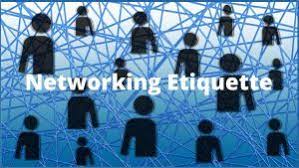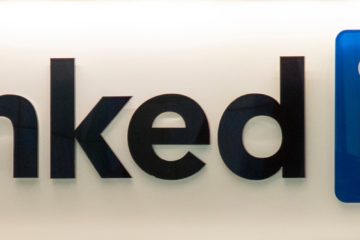Stepping out of college and into the real world can be both exciting and intimidating for fresh graduates. Building a career in a competitive landscape requires effective networking. It’s not just about exchanging business cards but about forging meaningful connections to navigate our early career stages.
This guide aims to demystify networking, offering proactive strategies to build a strong network efficiently. With the right approach, networking transforms from a daunting task into an enjoyable part of our career advancement journey.

Why Building Connections is Crucial for Fresh Graduates?
- Establishing connections early on can lead to valuable mentorships and career guidance.
- Reaching out can uncover job opportunities that aren’t publicly listed.
- Building a strong professional network enhances our visibility and credibility in your field.
Proactive Networking Strategies for Success
Building a strong network doesn’t happen by chance; it requires a strategic and proactive approach. Here’s how fresh graduates can start expanding their professional circles effectively.

1. Utilizing Social Media Platforms
Social media is a powerful networking tool./Social media facilitates valuable professional interactions. Platforms like LinkedIn are designed for professional networking, allowing fresh graduates to connect with industry leaders and participate in relevant discussions.
We need to create a professional profile, engage with content relevant to our desired field, and reach out to professionals with a polite message expressing our interest in learning from their experiences. Social media is about engaging, not just broadcasting our achievements.
2. Attending Professional Events and Career Fairs
Despite the digital age, face-to-face interactions still hold immense value. Attending networking events, career fairs, and industry seminars is a fantastic way to meet professionals and learn about the latest trends in our field.
Following up with these connections we make with a personalized message or email, will help us expand our professional circle.
3. Reconnecting with Alumni Networks
Alumni often offer valuable advice, mentorship, and even job referrals. We should be tapping into our university’s alumni network to connect with former students who are now established professionals in our desired field.
We can reach out through your university’s alumni relations office, join alumni groups on social media, attend alumni events, and reunions or participate in alumni events or webinars and workshops.
Incorporating these strategies into our networking endeavors not only expands our professional connections but also boosts our job search, offering valuable insights and opportunities that can shape our career trajectory from the outset.
Building a Strong Personal Brand through Networking

Networking isn’t just about collecting contacts; it’s about crafting a personal brand that leaves a lasting impression. For fresh graduates entering the workforce, developing a strong personal brand is as critical as having an impressive resume. Let’s dive into some strategies to help us build our brand through networking.
Crafting an Elevator Pitch
An elevator pitch is a quick, persuasive speech that sparks interest in who we are and what we offer. It’s called an ‘elevator pitch’ because it should be short enough to present during an elevator ride!
We should tailor our pitch focusing on the audience’s interest, starting by introducing ourselves, and highlighting our academic background, skills, and what makes us unique. Practicing our pitch will help us present ourselves confidently, making every networking opportunity count.
Leveraging LinkedIn for Career Growth
LinkedIn is a vital tool for career growth, especially for fresh graduates, it’s our digital handshake. We need a polished profile with a professional photo and a compelling summary.
Increase visibility by posting updates, sharing relevant content, and engaging with others. Connect with alumni, join industry groups, and participate in discussions to expand our network and catch the eye of potential employers.
Networking Etiquette for Fresh Graduates

Proper Networking Etiquette ensures positive and lasting impressions on the professionals we meet. Here are some foundational practices to keep in mind.
Approaching Professionals for Informational Interviews
For fresh graduates, informational interviews are invaluable for gaining insights into our desired industry from seasoned professionals. When requesting one, we should clearly state our intentions and what we aim to learn.
Research the individual’s background and tailor our message accordingly, highlighting how their expertise relates to our career goals. We must respect their time, and if they agree to meet, come prepared with thoughtful questions—along with a well-crafted resume to leave a lasting impression. The objective is to gain knowledge and forge a connection, not to solicit employment. For tips on creating a standout resume, refer: Crafting a Targeted Resume: The Ultimate Guide to Landing Your Dream Job.
Sending Thoughtful Follow-Up Emails
After any networking interaction, it’s essential to send a follow-up email. This shows appreciation, reinforces interest, and keeps communication open for future opportunities.
In your email, we should express gratitude for their time and insights, referencing specific valuable points from the interaction, and suggest a future catch-up or way to stay in touch. Following up is a straightforward yet potent strategy to build and maintain professional relationships.
Overcoming Networking Challenges for New Graduates
 Navigating the professional world as a recent graduate can be intimidating, particularly in networking. While networking opens doors to numerous opportunities, it also presents its own set of challenges. Let’s address common hurdles for new graduates and strategies to overcome them.
Navigating the professional world as a recent graduate can be intimidating, particularly in networking. While networking opens doors to numerous opportunities, it also presents its own set of challenges. Let’s address common hurdles for new graduates and strategies to overcome them.
Dealing with Rejection
Networking involves rejection, but it’s crucial not to internalize it. It doesn’t define our worth or abilities. Instead, let’s view rejection as a chance to learn and improve./ Rejection is a part of building professional relationships, but it’s important not to take it personally. It doesn’t reflect our value or capabilities. Instead, we should see rejection as an opportunity to grow and refine our approach.
Whenever possible, let’s ask for feedback and use it to refine our approach. We should maintain a positive attitude and confidence throughout. Networking is a numbers game, so perseverance is key. Persistence often pays off, so let’s not give up after a few setbacks.
Building Confidence in Networking Situations
Networking might seem intimidating, but building confidence is key. We can start by engaging with peers and attending industry meetups. Prepare by researching attendees and companies, and have talking points ready.
Networking improves with practice, we should set achievable goals and celebrate successes. With time, we’ll become more comfortable and confident, paving the way for stronger professional connections.
How to Measure Our Networking Success?
- Tracking the number of meaningful connections made.
- Monitoring our engagement on professional networking platforms.
- Keeping a record of networking events attended and follow-up actions taken.

In conclusion, Networking isn’t a one-time effort; it’s a vital skill shaping our careers from graduation onward. Building a strong network requires patience, persistence, and positivity. We must remember, that networking aims to forge meaningful, professional relationships. Here are a few key takeaways:
- Being proactive: Don’t wait for opportunities to come to us. Seek them out by attending industry meetups, conferences, and seminars.
- Staying connected: Use social media platforms like LinkedIn to keep in touch with our connections. Share updates, ask questions, and engage in conversations.
- Offering value: Networking is a two-way street. Let’s think about how we can help others in our network, not just how they can help us.
Networking is a lifelong skill that evolves with us. Let’s embrace and refine it to propel us toward our career goals. The world is brimming with opportunities, waiting to be unlocked.



0 Comments